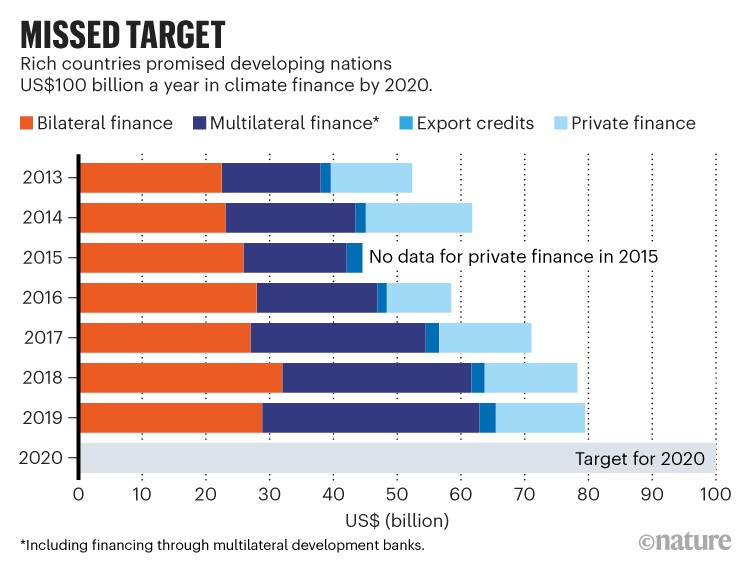Hello Nature readers, would you like to get this Briefing in your inbox free every day? Sign up here.

If an emerging strain of SARS-CoV-2 evades the immunity already conferred by vaccines and infections, vaccine makers say they will act quickly to roll out new jabs.Credit: Chandan Khanna/AFP via Getty
Vaccine makers brace for new variants
Vaccine developers are preparing for the possible emergence of an ‘escape variant’ — a dominant strain of SARS-CoV-2 that evades the fledgling immunity established through vaccines and previous infections. Three COVID-19 vaccine makers — Pfizer, Moderna and AstraZeneca — share how they are becoming nimble enough to design and test an updated vaccine against an unknown viral strain, in record time.
Pig kidney successfully tested in a person
Surgeons temporarily connected a kidney from a gene-edited pig to a person, who was brain dead. “It had absolutely normal function,” said physician Robert Montgomery, who led the surgical team last month at a hospital in New York City. “It didn’t have this immediate rejection that we have worried about.” The gene-edited pig’s cell surfaces do not have a sugar molecule called α-1,3-galactose, or α-gal, which triggers an immediate reaction from the human immune system.
Associated Press | 5 min readRead more: New life for pig-to-human transplants (Nature | 11 min read, from 2015)
Extinct Japanese wolf is dogs’ closest cousin
The extinct Japanese wolf (Canis lupus hodophilax) might have come from a vanished population of gray wolves in east Asia that also gave rise to modern dogs. Researchers sequenced the genomes of nine specimens of the species (the last one was killed in 1905) to find where it sits on the canine evolutionary tree. The results, which have not yet been peer reviewed, show the Japanese wolf to be more closely related to the ancestor of dogs than are any other wolves found so far.
Science | 5 min readReference: bioRxiv preprint
Features & opinion
Climate finance is failing — how to fix it
Twelve years ago, rich nations pledged to give US$100 billion each year by 2020 to help less-wealthy nations adapt to climate change and mitigate further rises in temperature. That promise was broken. Compared with the total investment needed to avoid dangerous levels of climate change, the $100-billion pledge is minuscule. “But the $100 billion is iconic in terms of the good faith of the countries that promised it,” says Saleemul Huq, director of the International Centre for Climate Change and Development in Dhaka. With climate finance a key area of negotiation at the United Nations COP26 climate conference next month, Nature lays out how the $100-billion pledge failed, which countries are most to blame — and how climate finance might be transformed in the future.

Source: Ref. 2
Synthetic biology — a call to meddle better
We are the planet’s caretakers, argues molecular biologist Beth Shapiro argues in her book Life as We Made It, and “it’s time to embrace this role”. For example, we could engineer species’ genomes to help them adapt to our sullied environment, create ‘gene drives’ to wipe out invasive species and even resurrect extinct species. Shapiro offers an enjoyable tour of ‘impossible’ species created to solve pressing human problems without ignoring the pitfalls and ethical dilemmas, writes reviewer Gaia Vince.
Is artificial intelligence the new alchemy?
Artificial intelligence is, in its current phase, something like alchemy — and that’s not necessarily such a bad thing, argues theoretical physicist Robbert Dijkgraaf. He considers whether the field is “based on a collection of tricks, topped with a good dash of optimism, rather than systematic analysis” and whether code is assembled “with the same wishful thinking and misunderstanding that the ancient alchemists had when mixing their magic potions”. If alchemy was a useful precursor to modern chemistry, what wonders might artificial intelligence eventually lead to?
